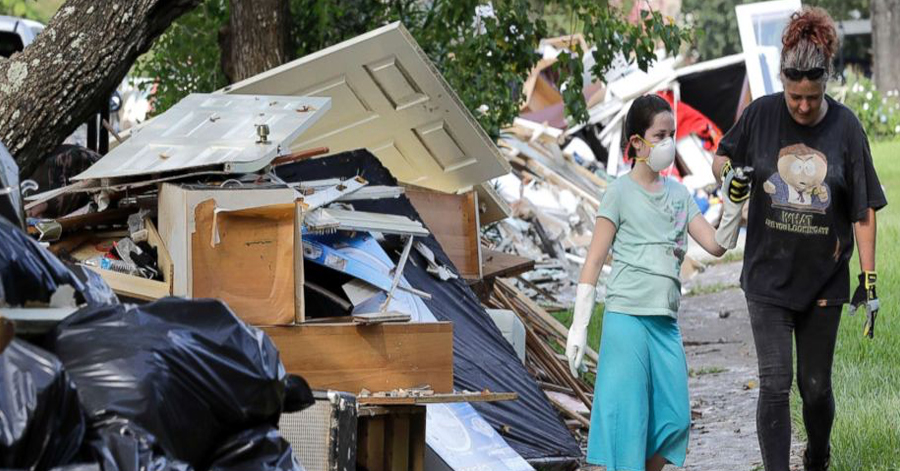Given the popular definition of insanity as repeatedly doing the same thing and expecting a different result, one might argue the National Flood Insurance Program, begun in 1968 and currently $25 billion in the red, might be a good example of the phenomenon. There may be good news as the Harvey waters recede, however, because greater involvement by the private insurance industry could be the solution to NFIP’s hemorrhage of red ink.
The problem of adverse selection plagued the NFIP, as people in flood prone areas were more likely to need and take advantage of the program. This created a situation analogous to the home loan climate that led to the financial collapse of 2008. Politicians desperately wanted to be on record as the heroes who ushered folks into the ranks of homeowners, but the lawmakers ignored the risks that an economic downturn would have a devastating ripple effect when home buyers who wouldn’t have qualified under traditional credit standards found themselves unable to pay the mortgage.
Those who ran the NFIP in recent years didn’t seem to learn the lessons of the great recession. Properties that endured floods dozens of times were nonetheless welcomed as members of the NFIP family, and the losses have mounted to the point where, without Harvey, there might have been strong support for reforming the system.
Happily, increased involvement by the property-casualty insurance industry appears to be contributing to solving this problem. Insurers are good – even better than the federal government, it appears – at sizing up risks and setting premium levels that both give consumers a competitive menu of choices, and the insurers a chance to make some money on the deal.
There’s no doubt flood insurance for coastal areas is critical. Banks aren’t going to lend on homes without some assurance that when the rains come, losses will be paid. These realities should convince Congress to reform the NFIP to allow insurers to jump into the flood insurance pool in a bigger way. The NFIP has enforced provisions of the federal law that effectively excluded private insurance. The insurance industry has in recent years developed data analysis techniques and more sophisticated actuarial analysis, to the point where private companies are now ready to partner up with their federal pals. For a long time the NFIP was the only game in town, in part because of statutory exclusions, but also because when the dust settled, or the rain dried, NFIP coverage costs a third to a half of the prices many private insurers would charge. But, that’s changing.
Politics, and hurricane fallout, make strange bedfellows. Environmentalists are uneasy allies with the insurance industry because they see oodles of cheap flood insurance in flood-prone areas as a formula for ecological disaster. They want environmentally sensitive areas to remain pristine, not festooned with condos whose destruction will be paid for by a flood insurance check. They think greater private insurance involvement will curb some of the excesses resulting from the blank checks issued by the federal government.
It may not be clear sailing in Congress. Some Democrats want to fold into a deal that forgives the NFIP’s $25 billion tab, or curb amounts insurers are allowed to earn. (But I checked and Republicans outnumber Democrats in Congress, so what can go wrong, right?)
Insurers may put their toe in the water at first by partnering with reinsurers, thus sharing both the premiums, and the risks, with reinsurance companies. In addition, part of the NFIP reform may be an arrangement by which insurers will sell policies covering multiple risks, cushioning the financial blow if a particular type of disaster hits. One way or the other, though, it appears that after having all the fun itself for fifty years, the federal government is prepared to permit private industry to join the effort, and insurers seem to be up to the task.
(via: Daily Caller)


